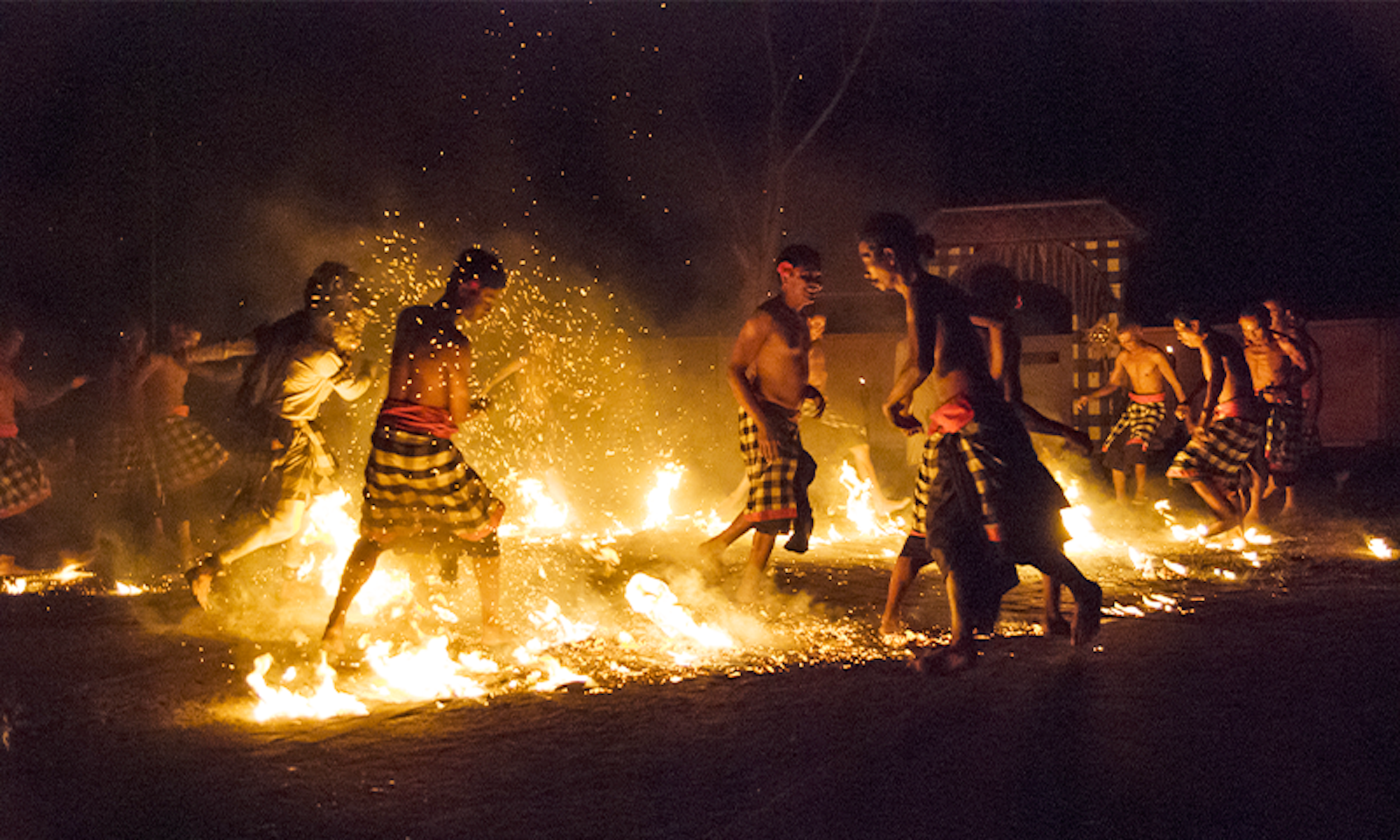What captured Dimitris Xygalatas’ imagination, as a boy growing up in Greece, were documentaries about science and the natural world. He admired people like David Attenborough, Jane Goodall, and Jacques Cousteau, adventurers who explained all manner of puzzling behaviors. Their passion for science was infectious. Reading magazines like National Geographic fed Xygalatas’ curiosity, and he became captivated by the exotic-seeming practices he’d come across—sometimes quite painful rituals, practiced in far away places. But Xygalatas, the author of the 2022 book Ritual: How Seemingly Senseless Acts Make Life Worth Living, thought these were things “other people” did.
It was a revelation when he “first discovered that people in my home country did the same kinds of things,” he said, “when they would engage in painful pilgrimages and perform fire-walking rituals and other kinds of extravagant ceremonies.” As a result, he began to realize what every anthropologist realizes. “That what, at first glance, might seem bizarre or exotic very often is something fundamentally human and something that we all, in our different ways, do in our own societies, even if the forms change.”
His Nautilus article, “The Real Magic of Rituals,” makes the case that rituals can help people soothe anxiety. Xygalatas explained where that idea came from. “Famously, Bronislaw Malinowski, an anthropologist who studied fishermen in the Trobriand Islands, noticed that these fishermen would perform a lot of rituals before going out in the open ocean to fish in what were very dangerous waters,” Xygalatas said. “But they wouldn’t perform as many rituals before fishing in the shallow waters of the lagoon.” Malinowski first proposed the idea that ritual is a mental technology people use to calm their nerves. It went untested for about a century. “It was just in recent decades,” Xygalatas said, “that a combination of careful anthropological observation and scientific measurement has actually shown this to be true.”
What at first might seem bizarre or exotic very often is something fundamentally human.
Since Xygalatas is from Greece, I had to ask him about the Eleusinian Mysteries, a kind of ritual initiation ceremony performed in ancient Greece. It’s still very much shrouded in, well, mystery, but one thing researchers do know is that it involved intense sensory deprivation. “They would use specific techniques to induce a sense of revelation,” Xygalatas said. “Rituals like initiation ceremonies are typically designed in order to give an experience a sense of tremendous importance.” Rituals like that function, in a sense, as a signal to our brain (Pay attention to this experience!) because something transformational is happening. “Those ceremonies invariably will be very flamboyant, sometimes they might be even scary and painful,” Xygalatas said. “The reason is that, to our brain, they’re marking that moment as momentous, something which will become part of our autobiographical narrative, which means our very sense of who we are as an individual.”
For Xygalatas, one of the most intriguing things is hearing people tell him how much these kinds of rituals make them feel better. “They increase their well-being, and in some cases, they’re also offered as health rituals, as healing rituals,” he said. “That to me was truly remarkable.”
Ritual is also a key component of healthy psychological development. Families that partake in more holiday traditions and related rituals, Xygalatas said, have children that grow better adjusted, and build better relationships with their parents. Those are findings he takes seriously. “I actually have a toddler, and we are already beginning to think about what kinds of rituals we want to incorporate in our family life, to instill in him this sense of tradition and continuity,” Xygalatas said. “For example, we are not particularly religious, and we’ve never had a Christmas tree around the home, but now that we have a toddler, we do.”
He also has his own rituals to observe. Whenever he goes back to his home country, Xygalatas visits the stadium of his home team and joins in the collective chanting and dancing fundamental to his sense of group membership. “They have the same effects on me as they always did since I was a kid in Greece,” he said. Watch our entire conversation below.
Lead image: Vera Petruk / Shutterstock




























